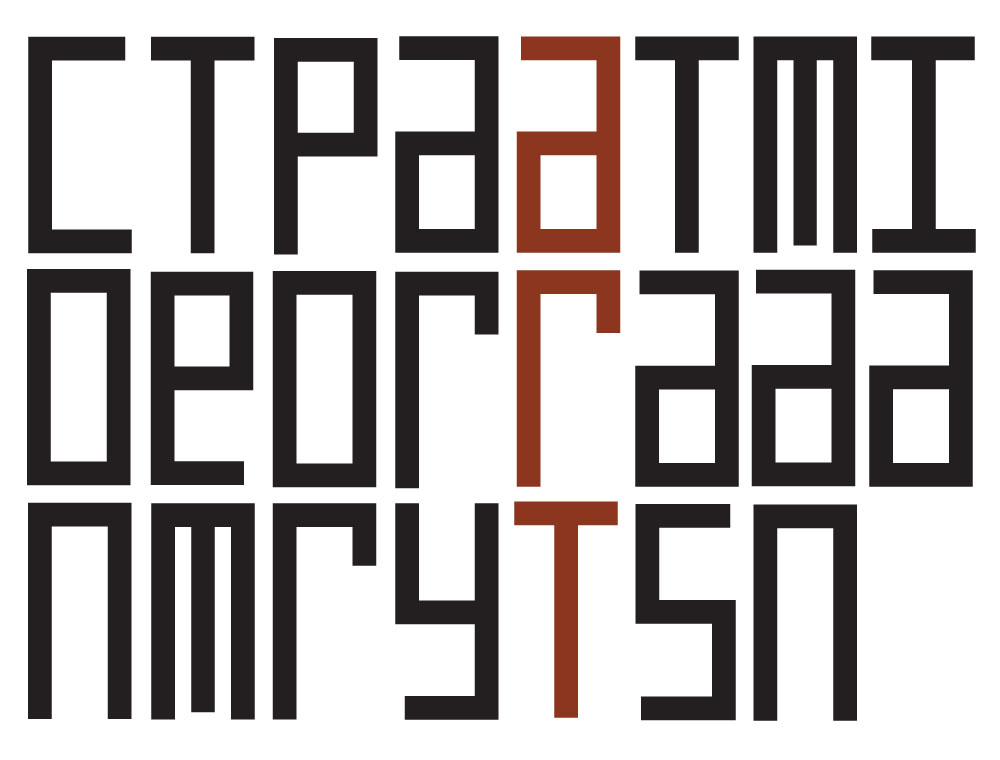#8 Systems Overload
Keith R.H. on Increase Productivity
Grace Herbert
Shotgun 7
The beep of the swipe card heralds our daily arrival to Kafka’s castle, the twilight zone. It is the material manifestation of the banal rhetoric of self-optimisation gurus, facilitators, consultants, coaches and team leaders. Bathed in artificial light, one embraces or at least endures the usual sensations of claustrophobia, agitation, and shallow breathing. The conversations are awkward yet familiar. There are always new systems within systems to navigate or more typically become lost in; if they don’t work the best recourse is to log a job with IT. Despite metric tonnes of evidence against their supposed advantages [1], hot desks are imposed from senior management to enable increased ‘mobility’, agility’, and ‘fast collaboration’.
“To organise beyond and against work, to collectively desert the regime of mobility, to demonstrate the existence of a vitality and a discipline precisely in demobilisation is a crime for which a civilization on its knees is not about to forgive us. In fact though, it’s the only way to survive it.” (The Invisible Committee, The Coming Insurrection)
The artists, musicians and not-for-profit workers live parallel lives. Many of us fight tooth and nail over diminishing crumbs from the table, as if work for pay is a badge of honour. Practitioners create unsustainable and unrealistic benchmarks for eachother, inflating and distorting expectations, as they self-flagellate in unpaid overtime. Former comrades sabotage eachother in turf wars, careening toward stress leave or burnout. The recuperation and co-option of creative and/or therapeutic work means that both happen predominantly through computer screens rather than face to face. The false promises of technology, ‘agility’ and ‘intelligent design’ cross pollinate with the airbrushed pipe dreams of a ‘fulfilling career’. Clichés belch out from media feeds about the quest to find ‘work/life balance’ – as if we are not held hostage, as if we have a simple choice to make. Meanwhile the spiralling cost of living pushes increasing numbers to the fringe.
“Technology is not a tool but an environment—a totality of means enclosing us in its automatism of need, production and exponential development.” (David Watson, Against the Megamachine)
“The value of a well-made and well-used tool lies not only in what it produces for us but what it produces in us.” (Nicholas Carr, The Glass Cage: Automation and Us)
In Australia, social inequality is out of control, and as we become more fragmented we become de-fanged and more easily compliant. Hobart, Tasmania is now a flashpoint of housing unaffordability as property investors and ‘treechangers’ benefit from artistic and tourist-based economic activity. Potential accomplices and co-conspirators seem to prefer infighting on social media. Sometimes the only form of mild ‘resistance’ seems to be limited to walking down the street or standing in the park with a placard. Is our imagination limited to vigils, chanting, or clicking on change.org?
Globally, we find no adequate replacement for real community, and this has become a monumental health crisis. The UK already has a Minister for Loneliness and Australia seems ready to follow suit. As the fallout from our increased reliance on computers becomes apparent, preventable conditions such as RSI, prescription pill abuse, and obesity have skyrocketed; mirroring the exponential climb in rates of anxiety, depression and loneliness. Are they totally unrelated, or are they all interwoven signs of the deepening crisis? Many, of course, refuse to accept this trajectory and are carving out a statement in response. In France, the yellow vest eruption signals a dissolution of left and right politics, evading categorisation, targeting the government itself and its litany of failures rather than single issues.
“The instruments of science were helpless in the realm of qualities. The qualitative was reduced to the subjective: the subjective was dismissed as unreal, and the unseen and unmeasurable non-existent … What was left was the bare, depopulated world of matter and motion: a wasteland.” (Lewis Mumford, Technics and Civilization)
“The seizing control over our own destinies which is the act of revolution will involve the creation of new selves and new forms of interaction and community. ‘Experts’ in anything can only hinder this.” (Give Up Activism, Andrew X)
Critiquing only one institution falls short. An economic analysis of capitalism, or a scientific explanation of unfolding environmental crises, although necessary, does not run deep enough. Technological progress is the nearly-unquestioned story of civilisation, domestication and mass society – its inevitability is reinforced, the onrush of the singularity embraced. A sober analysis of mass society and the technosphere, and its supposed ‘benefits’ to humans (physically, psychologically, spiritually), is more crucial than ever. The sterile sensory deprivation tank of the cubicle is anathema to productivity, creativity, fulfilment or connection. Unplug, resist, and play fiercely.
Increase Productivity exhibited at Contemporary Art Tasmania 16 March – 20 April, 2019 and was the result of the Shotgun 7 development program. Shotgun is a partnership between Contemporary Art Tasmania, Mona and DETACHED.
Keith R.H. has worked in homelessness, housing support and prisoner support space for over a decade. He greatly enjoys working with people, and is particularly interested in narrative criminology and the desistance paradigm.
